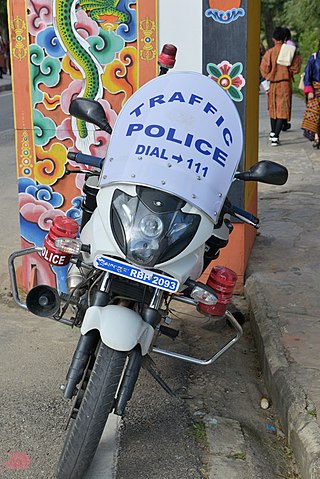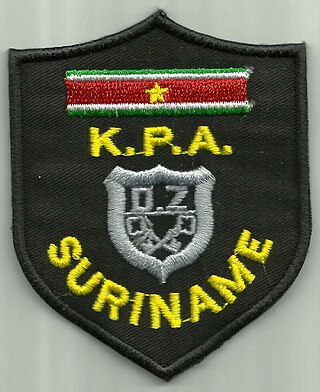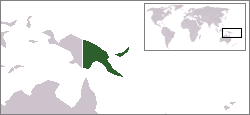This article needs additional citations for verification .(May 2016) |

Crime in Benin is high and especially targets visitors. [1]
This article needs additional citations for verification .(May 2016) |

Crime in Benin is high and especially targets visitors. [1]
Petty crime is common throughout Benin. [1] Street robbery is a significant problem in Cotonou. Robbery and mugging occur along the Boulevard de France (the beach road by the Marina and Novotel Hotels) and on the beaches near hotels frequented by international visitors. Most of the reported incidents involve the use of force, often by armed persons, with occasional minor injury to the victim. [2] Even in daylight hours, foreigners on the beach near Cotonou are frequent victims of robberies.[ citation needed ]
There has been a continued increase in the number of robberies and carjacking incidents after dark, both within metropolitan Cotonou and on highways and rural roads outside of major metropolitan areas. Overland travel to Nigeria is dangerous near the Benin/Nigeria border due to unofficial checkpoints and highway banditry.[ citation needed ]
Drug trafficking in Benin is increasing, due mainly to the porous borders and lack of government intervention of the illegal drug trafficking. While neighboring countries are making a concerted effort to fight the drug trade, the traffickers are using Benin to traffic drugs from South America into the United States and Europe. Drug use within Benin is low, with marijuana being the drug of choice. Marijuana is grown in the central region of Benin. [1]
There is a high rate of credit card and automated teller machine (ATM) fraud, largely targeting foreigners. [3]
In 2011, Transparency International ranked Benin as 100th of 182 countries on perceived corruption. Benin's score was 3 with 10 being the best possible score. [4]

Crime in the Dominican Republic is investigated by the Dominican Republic National Police.
Organised crime in Nigeria includes activities by fraudsters, bandits, drug traffickers and racketeers, which have spread across Western Africa. Nigerian criminal gangs rose to prominence in the 1980s, owing much to the globalisation of the world's economies and the high level of lawlessness and corruption in the country.

Crime rates in Portugal are generally low, and most crimes are non-violent. Portugal's security and peace indicators compare favourably to those of other countries; According to the Institute for Economics and Peace's 2022 Global Peace Index report, Portugal ranks as the 6th most peaceful country in the world.

Bhutan has a low crime rate. Incidents of petty crime are occasionally reported in the country. Violent crime is very uncommon. Some cases of drug abuse are reported; alcohol abuse is a problem. But in general, drug trafficking is low. The most serious threat to Bhutan's security is terrorism by different terrorist groups from neighboring countries illegally camped in the nation.

Crime and violence affect the lives of millions of people in Latin America. Some consider social inequality to be a major contributing factor to levels of violence in Latin America, where the state fails to prevent crime and organized crime takes over State control in areas where the State is unable to assist the society such as in impoverished communities. In the years following the transitions from authoritarianism to democracy, crime and violence have become major problems in Latin America. The region experienced more than 2.5 million murders between 2000 and 2017. Several studies indicated the existence of an epidemic in the region; the Pan American Health Organization called violence in Latin America "the social pandemic of the 20th century." Apart from the direct human cost, the rise in crime and violence has imposed significant social costs and has made much more difficult the processes of economic and social development, democratic consolidation and regional integration in the Americas.
There is a high crime rate in all regions of Kenya. Petty offences are the most common crime with stealing being the most reported crime. Robbery and theft are among the least cited criminal offences. Crime in Kenya is as low as in countries like Tunisia with a rating of 3.46 crimes per 100,000 people. However, it is important to note that crime in Kenya often goes unreported and police often lack the training or experience to effectively respond to crimes. Despite the reportedly somewhat low crime rate, Kenya has a big problem with organized crime and many gangs work with corrupt police officers and sometimes even the government. Kenya has a criminality score of 7.02 on the Organized Crime Index, the 16th most in the world, an improvement from 11th in 2021.

Crime in Saudi Arabia is low compared to industrialized nations. Criminal activity does not typically target foreigners and is mostly drug-related. Petty crime such as pickpocketing and bag snatching does occur, but is extremely uncommon. During the period of Hajj and Umrah in the holy cities of Mecca and Medina, there have been growing incidents of pickpocketing, especially with women pickpockets becoming an increasing phenomenon. Although incidents of violence are generally considered to be rare, violence has occurred more frequently due to economic pressures on expatriate workers during the last few years. In 2013, the number of crime cases reported by the Ministry of Justice was 22,113, a 102% increase from 2012.

Crime in Qatar is very low compared to industrialized nations. Petty crime such as pickpocketing and bag snatching does occur, but is extremely uncommon. Although incidents of violence are generally considered to be rare, violence has occurred more frequently amid an increase in the population of Doha, the capital and largest city of Qatar, and economic pressures on expatriate workers over the last few years.

Crime in the Maldives ranks from low to moderate, but crime rates in the country have increased significantly in recent years. Incidents of theft on beaches or in hotels do occur. Juvenile delinquency is a growing problem in the Maldives. According to the data available from the Ministry of Defence and National Security, there has been an increase in petty crime in the country. In 1992, 169 cases of petty crime were reported, while the number was 462 in 1996. The number of sentenced persons under the age of 19 also increased from 391 in 1988 to 512 in 1998. Fraud examiner Peter Lilley in his book Dirty Dealing writes that money laundering is not a significant problem in the Maldives.

Crime in Panama is investigated by the Panamanian police.
Crime in Haiti is investigated by the Haitian police.

Crime in Nigeria is investigated by the Nigerian Police. Nigeria is considered to be a country with a high level of crime, ranking 17th among the least peaceful countries in the world. During the first half of 2022, almost 6,000 people were killed by jihadists, kidnappers, bandits or the Nigerian army.
Benin is a country of origin and transit for children subjected to trafficking in persons, specifically conditions of forced labor and forced prostitution. Until recently, analysts also considered Benin a destination country for foreign children brought to the country and subjected to forced labor, but new information from government and non-government sources indicates the total number of such children is not significant. The majority of victims are girls trafficked into domestic servitude or the commercial sex trade in Cotonou, the administrative capital. Some boys are forced to labor on farms, work in construction, produce handicrafts, or hawk items on the street. Many traffickers are relatives or acquaintances of their victims, exploiting the traditional system of vidomegon, in which parents allow their children to live with and work for richer relatives, usually in urban areas. There are reports that some tourists visiting Pendjari National Park in northern Benin exploit underage girls in prostitution, some of whom may be trafficking victims. Beninese children recruited for forced labor exploitation abroad are destined largely for Nigeria and Gabon, with some also going to Ivory Coast and other African countries, where they may be forced to work in mines, quarries, or the cocoa sector.

Crime in Bulgaria is combated by the Bulgarian police and other agencies. The UK Government ranks Bulgaria as a low crime area and crime there has significantly decreased in recent years.
Crime in Denmark is combated by the Danish Police and other agencies.
Prostitution in Benin is legal but related activities such as brothel keeping and benefiting from the prostitution of others are illegal. UNAIDS estimates there to be about 15,000 prostitutes in the country. Most of these are migrants from neighbouring countries, mainly Nigeria, Togo and Ghana. Only 15% of the prostitutes are Beninese. Prostitution occurs on the streets, in bars, restaurants, hotels and brothels. With advent of the smartphone, many prostitutes use apps to make arrangements with clients.

Crime is present in various forms in Laos.

This article discusses crime in Suriname.
Crime in Saint Kitts and Nevis is considerably higher than many other parts of the world. In 2012 Saint Kitts and Nevis had a homicide rate of 33.6 per 100,000 citizens, the 8th highest in the world, and the 7th highest during the period from 2005 to 2014. As of 2011 Basseterre had the highest murder rate of any capital city in the world at 131.6 per 100,000 inhabitants.

Papua New Guinea (PNG) is officially known as the Independent State of Papua New Guinea after gaining absolute independence from Australia on September 16, 1975. PNG is the largest country in the South Pacific region and comprises the eastern side of New Guinea including its islands. Crime in Papua New Guinea, both violent and non-violent, have contributed to the developing country's crime rate being one of the highest in the world.